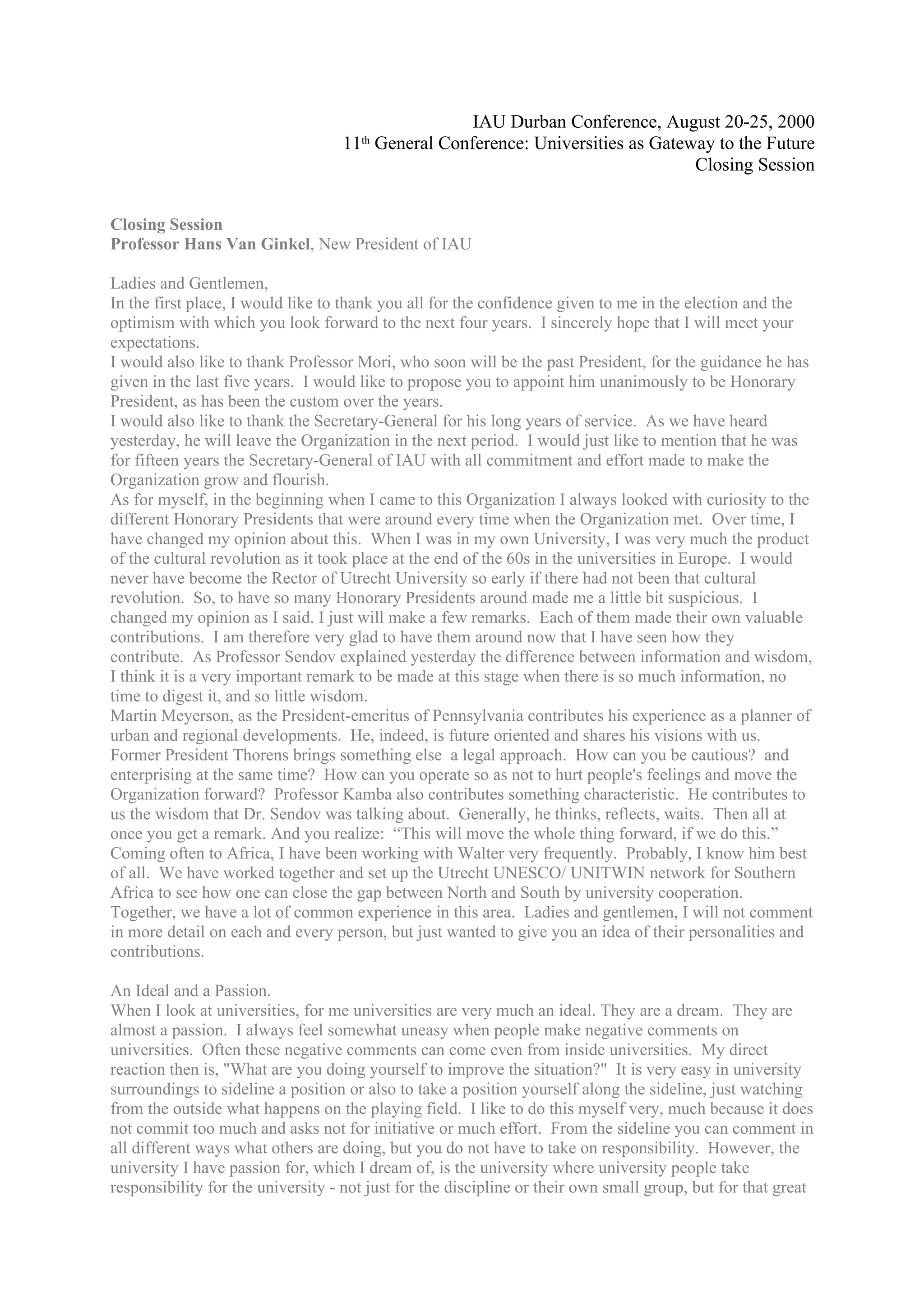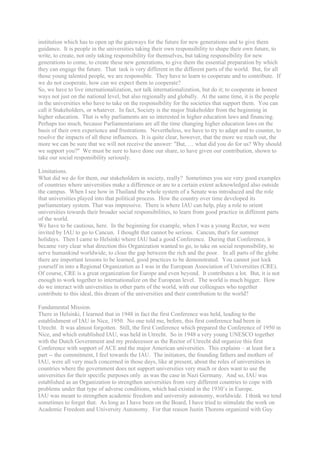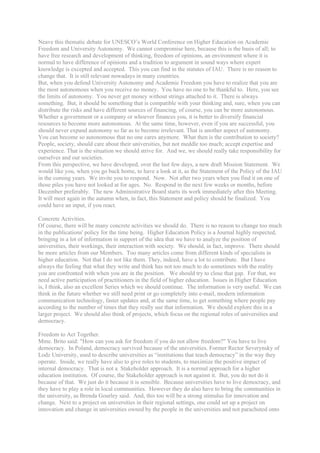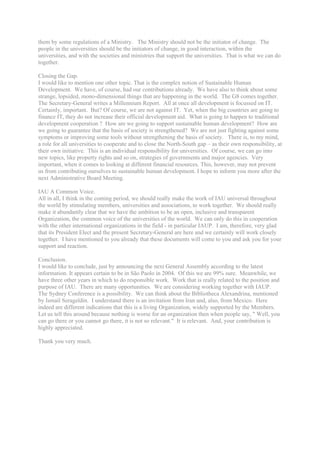The document summarizes the closing remarks from the president of the International Association of Universities (IAU) at their 11th General Conference in Durban, South Africa.
The new IAU president thanked the past president for his leadership and secretary-general for his service. He noted the valuable contributions of honorary past presidents from different backgrounds and experiences. He expressed his passion for universities as ideals that take responsibility for shaping the future and engaging society. However, universities must also show their social responsibility and contributions to stakeholders to maintain support. The IAU can help orient universities to their broader roles and share good practices from around the world, while being cautious not to overextend. The IAU was founded to strengthen academic freedom worldwide



